|
The African Oyster Trust is delighted to invite friends and supporters to the Annual General Meeting 2022.
This year's meeting will take place at 3pm on Sunday 16th October via Zoom. The formal proceedings of the meeting – including the presentation of accounts for year-ending 31st December 2021 – are expected to be succinct, leaving plenty of time for Lady Kira Dalton to update us on developments at the charity, and to answer your questions on another challenging year in The Gambia. So, please do join us for this annual opportunity to hear direct from Lady Dalton about our activities in The Gambia – one of the poorest countries in the world, which has found a special place in all our hearts. Please email info@africanoystertrust.co.uk by Sunday 9th October to confirm your place. The agenda and Zoom link will then be emailed to you ahead of the meeting. We very much look forward to seeing you online.
0 Comments
A report by Josh Dale-Harris, Trustee of the African Oyster Trust An educational story ☺ “Two men were walking through the bush when they came across a huge hungry lion. There was a small tree at hand and one of the men climbed up it, however there was only room for one. The other man laid down on the ground and remained perfectly still. The lion came up and sniffed around the man lying on the ground and after while went on its way. "The two men resumed their journey and the man who had taken refuge in the tree asked his companion why the lion had not eaten him?" Let’s stop now and I will tell you the rest another time... but maybe you are a little dismayed that I have paused in the telling of this tale? Perhaps your interest is heightened a bit? OK, so I’ll continue. “The man replied that, long ago, he had been told that if you played dead then a lion would not eat you and that is why he survived.” Kemo Bah recounted this story. He is an inspirational educationalist and managing director of the trust's Gambian Management Team (who implements all AOT’s projects), and he told Kira Dalton, Karen Wardell and me this story as we had supper at the Moses Motel (more on that later!). The point Kemo was making is that stories like these subtly educate children in the benefits of learning and then applying what you learn. I saw 3 of the 4 nursery schools AOT assists in Talinding (Hilary Emery), Kankujang Keitaya (Stepping Stones) and Jappineh and I was really impressed by what the charity has achieved. These are excellent schools. Moses Motel, Soma
Our one-night stay up-country reminded me of my back-packing days! Soma is close to Jappineh where AOT assist a health clinic and nursery school. After a long and dusty day, I entered my room and drew the curtain - it and its rail came crashing to the floor! Then the toilet flush handle wasn’t connected to anything so I had to lift the cistern cover and feel around in the murk for the wire to get the flush to work! Then the bathroom mat appeared to have been greased on its underside so it shot away from under you when stepped on. The bed had an under-sheet though no top sheet, problem solved by wrapping it over me. The ‘pillow’ felt as if it had been stuffed with marbles. Then the ‘concert’ started up next door – possibly the most discordant catatonic noise ever purporting to be music! All trivial stuff really compared to the mosquitoes which found their way in, in spite of the netting around the windows. Double application of my repellent (I’m not sure who its supposed to repel, me or the mozzies). Did you know that The Gambia lends its name to the Anopheles gambiae - one of the “most important vectors of malaria in sub-Saharan Africa!” Malaria is a curse and a big killer. AOT’s 3 clinics in Jappineh, Wellingara and Bakary Sambouya do inspirational work in the testing and treatment of malaria. All life’s dramas are played out – we met a little boy just one hour old on one occasion. I visited all the clinics and was introduced to their wonderful staff. It’s amazing the number of patients they treat and the life-saving work they do. On 5 Feb, I joined the Sir Howard Dalton Clinic’s (Jappineh) management meeting and witnessed the thoroughness of the accounting and administration as well as hearing about the local politics. I think I was able to give the team some helpful perspective when I explained that the difficulties and fractured relationships that exist in my village in rural Hampshire, sounded remarkably similar to their troubles! It may seem from my somewhat embellished account of our stay in the Moses Motel, that I had some reservations about the trip, not so! It was inspirational to see both the clinics and schools in action - they are making a big difference. Also, Lady Kira organised everything to perfection and, much to my amazement, we left and arrived on time everywhere we went in the 12 days or so we were ‘on the road’ touring schools and clinics. Her drive and energy coupled with the brilliant work from the Gambian Management Team is producing wonderful outcomes for the AOT donors and supporters. When travel restrictions to The Gambia eased a little in late autumn, our Chairman James Holden was able to return to see for himself how things are in a country where Covid levels appear relatively low but where the economy has suffered massively - a challenge compounded by the devastating storms which have recently wrought havoc on many of the Trust's school and hospital projects. We asked him to send us his thoughts and impressions.
25th November 2021 James Island I’ve just left my home in Warwick. Temperature 2 degrees Celsius and it’s due to rain shortly. By this time tomorrow I’ll be in The Gambia- temperature 32 degrees C and it won’t rain until next July! I’ve been going to The Gambia ever since 2004 when I first visited what was then called James Island. It’s a World Heritage site that’s slowly falling to pieces. And yet it’s slavery’s equivalent of the Holocaust’s Auschwitz: James Island was one of the main holding areas for Africans before they were shipped to the New World as slaves. It’s called Kunta Kinteh island now, after Alex Haley’s famous ancestor whom he traced through historical records and the extraordinary memory of Gambian griots who carry the history of their people orally. As I’ve already said, the island, which lies relatively near the mouth of the great river Gambia, is gently mouldering. The cells where the stolen Africans were caged pending transportation are now open to the fierce West African sun which frequently generates breezeless temperatures close to 40 degrees. And yet whenever I have visited I have found myself strangely chilled. To be honest it was this ‘James Island’ experience that prompted me to establish the AOT and I’m about to make my 21st visit. I really do wonder what I’ll discover on my visit. How has Gambia and its people fared? How are the schools and the hospitals that the AOT supports doing? I guess I shall find out soon enough… 2nd December Tears of a Clown On one level all looks unchanged. It’s still peaceful in the countryside and chaotic in the towns. They are preparing for presidential elections and yesterday we drove past a major rally for the UDP who stand for ‘Change is Coming’. The major town of Brikama was thronged by horn blowing Gambians uniformed in yellow T shirts. No one wore a mask. They certainly wanted change because on another level there’s a deep problem. Whilst many Gambians still believe that the virus is a hoax- they all recognise the economic damage wrought by the devastation of their tourist industry. I am the first client my bird guide has had in two years. The entire state support that my lodge received during lockdown amounted to £84.50 at current exchange rates. And this for a staff of 11. So far the AoT has had to rescue three financially devastated nurseries and has had to make special appeals for feeding programmes and to cover exceptional repair work due to severe storm damage. It just makes me realise how blessed we in the UK have been. For sure there has been a variance in the way that people have fared during lockdown, but nothing like the deprivations of The Gambia. And yet the people continue to smile and help and ask for little in return. Only today our car battery failed when we were way out in the bush and yet within 10 minutes a gang of young men gathered -all very willing to help us bump start our 4x4 down a steepish bush track. It is true then that The Gambia is still the smiling face of West Africa on one level but I suspect that their smiles are like those of clowns - they hide so many tears. 10th December The bee and the straw I’ve been back in the UK for a week now and was pleased to come out of self-isolation when my PCR test came back negative. I emerged into a world very different from The Gambia in so many ways. I have also learned that the results of the Gambian election mean an extension of power for the incumbent President Adama Barrow. His electioneering slogan was ‘Peace and Development’ – an outcome devoutly to be wished for. But is it just that a wish? Peace I think is a likely outcome and of course without this development is impossible. However, positive development is another matter altogether, particularly as much of the developed world moves back into Covid restricted status. The prognosis for Gambia’s tourist industry for next year is once again poor and that augers badly for so many in what is already a desperately poor country. As I waited in the departures lounge a bee fell into the dregs of a bottle of Fanta I was drinking through a straw. It struggled madly to escape and much to my surprise it managed to begin climbing up on my straw – a veritable ladder to freedom. However, the effort proved too much and it fell back down into the sweet orange liquid. I thought it was doomed, but once again it struggled for dear life and I decided to help. I placed the straw near its whirling legs and once it had gripped it I lifted the straw gently up and through the bottle’s neck. After a brief period of recovery and drying itself in the afternoon sunshine my bee disappeared into the vast blue African sky. One can take analogies too far, but as I look back I realise that this is how I see the African Oyster Trust. It offers a ladder for freedom for those Gambians whose life it touches. I am grateful for the chance to be involved in that task. Wellingara Health Centre provides vital medical services to its community in the Gambia. Unfortunately, the health centre building has become increasingly unfit for purpose. In particular, faulty electrical wiring renders the centre unsafe for patients at staff. It puts the clinic at risk of closure, and has the potential to start a fire which would leave the population of Wellingara without any prospect of further access to medical care. Through the Big Give Christmas Challenge we are hoping to raise enough money to rewire the health centre so it can continue to provide essential services. “Please help us rewire the Health Centre. Our work would be much easier if we could have a good, safe light and power supply. Sometimes it goes off in the middle of suturing a wound, and we cannot use the lab equipment we have in case we blow a fuse. We are very nervous of a fire.” — Dembo Njie, Wellingara Health Centre nurse The Big Give, the UK’s biggest online match-funding campaign, starts at 12pm (midday) Tuesday 30th November and runs until 12pm Tuesday 7th December. Donations made to the Trust during this period through www.theBigGive.org.uk will be doubled, with match funding of up to £1,000 available. So a gift of £10 will become £20, £50 will become £100, and so on. With the funds from this year’s Big Give Christmas Challenge, we will employ a competent contractor and purchase good quality cable, fixtures, conduit, circuit breakers and RCD (mains), and battery and charge controller (solar). By rewiring both the mains and solar systems to British Standards, we will ensure the facility can remain open and continue to treat patients for many years to come. “The African Oyster Trust’s Gambian Management Team asks for your generosity in donating to our Wellingara Health Centre. It has been very difficult here during the pandemic, and our country's main source of income through tourists has gone. Being able to make the health centre safe would make a huge difference to the community.” — Kemo Bah, Fanding Manjang, Ansumana Manjang and Seine Dampah (Gambian Management Team) Over the last two years, successful Big Give Challenge appeals have seen us launch and then expand our provision of a school-day breakfast for every child in our nursery schools.
Please support this year's African Oyster Trust Big Give Christmas Challenge if you can, by donating via the Big Give website between 12pm (midday) Tuesday 30th November and 12pm Tuesday 7th December. Remember, by taking part in the Big Give Christmas Challenge your donation will be match funded and doubled, giving it twice the impact!! Thank you. 3pm, Sunday 19th September at Leycroft, Station Road, Claverdon, Warks, CV35 8PE, and also by Zoom.
Friend and supporters of the African Oyster Trust are warmly invited to join us at our Annual General Meeting, this year being held both in Warwickshire and online via Zoom. The ‘business’ part of the meeting - including the presentation of accounts for year-ending 31st December 2020 - will be succinct, leaving plenty of time for Lady Kira Dalton to update us and answer questions on an exceptionally eventful and difficult year in The Gambia. Afternoon tea will be served for those attending in person. Please confirm by email or in writing by Friday 3rd September if you wish to attend, indicating whether you will attend in person or via Zoom. Agendas and Zoom links will then be issued as appropriate. Email leycroft@btinternet.com or write to Mrs Gill Evans, Secretary AOT, Leycroft, Station Road, Claverdon, Warks, CV35 8PE. Gambia has been hit by prolonged bad weather in recent weeks, culminating in an overnight storm on Thursday 8 July which levelled scores of houses, left more than 1,500 homeless or displaced, and claimed at least 10 lives.
The heavy winds, rain and flooding affected all seven districts of The Gambia, with many areas suffering a prolonged loss of electricity and running water because of damage to utility infrastructure. Falling walls and trees injured more than 100 people, and sheet iron roofing was ripped from hundreds of buildings. While the African Oyster Trust’s nursery schools remained largely intact and operational, a number of nurseries and other community buildings were severely damaged in the villages where we work. The Trust has committed to helping these communities repair a number of schools and key buildings, with work already underway. Please click the 'donate' button to give whatever you can in support of our emergency response. An update from Lady Kira Dalton: I was very fortunate to be able to bring my flight forward and return to Gambia at the end of October just before the 2nd UK lockdown. Just as I arrived, the schools re-opened - having been closed since last March. All were provided with hand washing stations (buckets with a tap at the bottom) by the Ministry of Education as none have what we would consider to be washrooms. Even the very large, 1,600 + student Lower Basic Schools (in the Grounds of which we have our nursery schools at Kunkujang Keitayah and Gunjur) only have a couple of standpipes in the middle of the compound to provide all their water. And recently, due to increased demand, those are only working during limited hours of the day. So one of the first jobs of our school cleaners is to fill up many buckets for washing hands and drinking and toilet flushing and to carry them to where they are needed. Quite a task in hot weather to provide enough water for over 100 kids. The children quickly adapted to the more frequent hand washing routine - on arrival, after playtime, before snacks etc. supervised by their class teachers. And some of them even remember to bring their masks and wear them at school. Gambia TV keeps showing some really catchy musical public service ads reminding people to wash their hands. You can see an example at the end of the brief video produced for our recent AGM. They are certainly much more fun than those I have seen on British or American TV! As usual, during one of my first visits to each school, I was able to drop off their first aid supplies. Plasters, disinfectant, gloves, etc. All of the schools are looking very smart after their post rain painting - ably organised by Fanding. It was a pleasure for me to see the kids tucking in to their morning porridge on arriving at school. This has made a huge difference to their punctuality and attention span! Fortunately, thus far, Covid case levels have remained very low in single figures up until very recently and schools are still open. Officially all of Africa is now experiencing a second wave and the numbers in neighboring Senegal are quite alarming, especially in view of the very long and porous border. There are many villages which actually straddle the border so it is nearly impossible to prevent people crossing without any testing or tracing. Unfortunately the few direct flights which arrived here over the Christmas period, mainly with returning Gambians from various European countries and a very few long term tourists, have brought with them numerous Covid cases including several of the more contagious UK variant. As a result, during last week our number of active cases rose from 5 to 81. Not good in a country with barely enough medical facilities to cope with normal scenarios. I do fear for the population over the coming weeks. In the communities of Jappineh and Wellingara our Health Centers continue to do an excellent job treating the many other diseases and injuries which still require attention despite all the attention being paid to Covid. There will still be far more deaths due to malaria in Africa. A very big event was the arrival of the new ambulance at Wellingara Health Center - appropriately named Dee 1 in honor of our recently retired Chair Dee Bixley who was with me when we spotted the then run down vehicle in a garage last year . Now we will be able to resume delivering babies knowing that should an emergency arise, we can safely transfer to Fajikunda or Banjul for caesarian. But probably the biggest problem caused by the pandemic has been the effect on the economy due to the scarcity of tourists. Normally tourism accounts for around 25% of GDP directly plus all the indirect revenue stemming from sales of fruit, veg and fish to hotels and restaurants, taxi drivers, laundry businesses etc.
This is especially tragic in a country with no social welfare as such. There have been a few distributions of bags of rice, cooking oil and sugar to needy households but not nearly enough to address the problem. Many families have been plunged back into abject poverty when the one bread winner has lost his job as a waiter, tour guide, hotel cleaner. I would like to finish by saying yet another big thank you to all of our regular donors, and particularly to the many new donors who contributed to our Big Give Christmas appeal. Thanks to your generosity we managed to exceed our target, thus ensuring that the porridge programs will continue and the kids will be sure of getting at least one filling meal a day. We know that things are tough everywhere at the moment, but please do continue to spare a thought, and a few quid if you possibly can, so that we can continue our work in The Gambia. A school-day breakfast for even more children: Please support THE BIG GIVE Christmas Challenge 202021/11/2020 The African Oyster Trust is delighted to be taking part once again in the Big Give Christmas Challenge. Our aim is to raise enough money to not only continue but expand our breakfast programme, which provides school-day breakfasts for children in our nursery schools. “Our children are so grateful for their breakfast porridge - some of them arrive as early as 7.30 am! Everything has become more possible because their full tummies lead to effective learning, and there are no complaints about stomach pains.” AoT Teacher The Big Give, the UK’s biggest online match-funding campaign, starts at 12pm (midday) Tuesday 1st December and runs until 12pm Tuesday 8th December. Donations made to the Trust during this period through www.theBigGive.org.uk will be doubled, with match funding of up to £1,000 available. So a gift of £10 will become £20, £50 will become £100, and so on. Last year’s successful Big Give Challenge saw us raise funds to provide a school-day breakfast for every child in one of our nursery schools. Since then we’ve expanded this successful pilot scheme to a second school. Now, with your help, we want to bring this priceless service to a third African Oyster Trust nursery school. Average income in The Gambia is less than £1 a day, and the cost of rice, bread and other essentials have all sky-rocketed in recent times. As a result, many children are arriving at our schools hungry and malnourished. A simple porridge breakfast every school morning means that the children can start their day with a full stomach and ready to learn. Breaking the cycle of poverty The African Oyster Trust was founded to support education and health projects not funded by the government. We believe that education is one of the most powerful and long-lasting ways of breaking the cycle of poverty. Unfortunately, when children arrive at school without having had anything to eat, it badly affects their levels of attention and ability to learn. We want to ensure the children can concentrate properly and benefit fully from the educational experience by providing a simple breakfast at the start of every school day. ‘Turning porridge to knowledge’
The funds from the Big Give Christmas Campaign will allow us to set up a kitchen at a third nursery so that every morning when they arrive the children are given porridge. The cooks prepare it runny enough to be served in plastic cups. This simple breakfast, combined with our nursery education, really will give these children a better start in life. It is a simple yet effective way to make a real difference in The Gambia. Making a Difference "The breakfast porridge we can now supply at some schools improves lives. Children arrive at school punctually, the nutrition helps retain their learning, and they are happier! Also, the economical standing of their parents has improved because they don't have to worry about finding food money." - Education Director, Kemo Bah "Our children are so grateful for their breakfast porridge - some of them arrive as early as 7.30 am! Everything has become more possible because their full tummies lead to effective learning, and there are no complaints about stomach pains." - A teacher at Makumbaya Nursery School "Knowing there will be porridge, our children are so happy that they almost dance to school! To all of you who have supported us, we thank you. The porridge helps them a lot." - A parent at Mariama Mae School "The African Oyster Trust is a remarkable charity. All its work is funded by voluntary contributions. It has zero overheads. ALL the donations go to support the people and projects that need it most. You can be sure that every penny you donate will be put to good use." - Jackie Keyser, donor Please support The African Oyster Trust Big Give Christmas Challenge if you can, by donating via the Big Give website between 12pm (midday) Tuesday 1st December and 12pm Tuesday 8th December. Remember, by taking part in the Big Give Christmas Challenge your donation will be match funded and doubled, giving it twice the impact!! Thank you.
As is customary at the Trust's Annual General Meeting, Lady Kira Dalton presented an update on our work and the general situation in Gambia at the moment. The meeting also opened with a short video to set the scene. Both are reproduced here for anyone who was unable to join us on the day.
Introductory film: From Lady Kira Dalton: Looking back on last year's report I can only say that this year has turned out to be even more eventful - not necessarily in a good way - although there have been some memorable highlights too. Yet again the Gambian economy has been hit extremely hard by several major external shocks. Firstly, the demise of Thomas Cook had a dramatic impact on tourism, right from the start of this season. Tourism is a mainstay of the economy historically, accounting for around 25% of GDP, with a similar percentage arising from agriculture and fishing. Many annual visitors could not travel when they were unable to find alternative affordable flights in time to match their holiday dates. Unfortunately, as was the case with the threat of Ebola and the post- election evacuations in previous years, some of these regular visitors go elsewhere and decide never to return to The Gambia. Even our very own Banjul Brewery has decided to stop production due to low demand and increased taxation. Then, just as tourist bookings were picking up for the start of the New Year, threats of violent protests by an anti-government group called “Three Year Jotna” (three years is enough – regarding the tenure of President Barrow) and counter demonstrations by the APRC (demanding the return of ex-President Yahya Jammeh) discouraged more tourists from coming. Dee Bixley was visiting me at the time and will tell you how, on several occasions, we had to detour or change our plans to avoid driving between large groups of protestors on one side of the road and fully armed riot police on the other. Unnerving! And finally, the arrival of Covid-19 forced the closure of borders and airport in mid-March, cutting short an already very poor tourist season. (Please read my separate blog specifically about the Covid situation.) The further effect of the worldwide pandemic will be felt for many years and has unfortunately pushed numerous people here back into abject poverty. Another major source of income throughout Africa and particularly The Gambia is overseas remittances. Some estimates say as much as 50% of some family's income comes from having a relative or two overseas sending home money. Of course, with the impact of Covid on European and USA employment, particularly in the hospitality and retail industries where many of these people are employed, we have already seen a sharp drop of over 20% in these funds. And with rapid escalation of Covid-19 their livelihoods are seriously threatened on all sides. There is no social welfare here but there have been various distributions of rice, oil and sugar meant to, at least, prevent starvation among the poorest members of society. Most say: “Too little and too late!” Also, there have been widely publicised accusations of the misuse of funds meant for poverty relief! We can see why, unfortunately, The Gambia will continue to depend on charities and overseas aid for the forseeable future, particularly to support health care and education. Covid-19 has highlighted just how woefully inadequate the Government Health sector is and the price has been paid by the exceptionally high numbers of deaths when compared with any other country – even in Africa. The fact that the entire country had just 3 ventilators and under 100 ICU beds says it all. On that depressing note, we will move on to some better news: AOT’s achievements this year. Thus far, both Jappineh and Wellingara Health Centers have remained open and very busy. All staff are fully equipped with PPE and well-aware of the need to observe precautions. Ansumana not only ably manages Jappineh HC but is also a member of the Regional Covid Surveillance Team. Interestingly, two members of the Jappineh team tested positive for Covid, which they caught while attending a funeral - not from their patients! Both were asymptomatic and able to return to work after home quarantine. The health facilities were disinfected and reopened almost immediately. Jappineh now have three full-time Nurse/Midwives. Modu Barrow joined Ansumana Manjang and Modu Jobe, enabling them to continue to provide 24-hour services 365 days of the year. And all 3 are trained in psychiatric nursing and are available to attend the Njie brothers’ psychiatric establishments whenever required. Just as the Covid epidemic was unfolding, Omar Jarju made a visit to Karamo Njie and discharged 16 patients (with medication) to reduce dangers of transmission/overcrowding. He will visit Jappineh again this month to monitor the situation. Thus far Njie is contributing to medical costs! Wellingara now has a fully functional ambulance and the driver is undergoing training. Purely by fluke, Dee and I spotted an old ambulance at the back of my local garage. On making enquiries we found out that it was for sale and had been abandoned by another health center when they received a new one. We were able to negotiate an excellent price and felt this was a good use of the Cecil Rosen funds. Riders carried out repainting and full maintenance for next to nothing by way of apology for the previous ambulance going missing from their premises and donated to us a pop-up stretcher on wheels. We have identified a very good candidate to join Wellingara as a third Nurse/Midwife, as and when funds allow next year. This development will enable them to open 24 hours a day and to resume delivering babies. (And just in time as Fajikunda, the nearest large Govenment hospital, has been closed ever since a group of their health workers tested positive for Covid.) They have all been quarantined, some have resigned, and the facility is awaiting the fumigation team before it can re-open. So in the meantime, their patients all come to us. People still get malaria, wounds, dog bites, colds, stomach problems, worms etc., and they all need treatment! After persistent efforts, we have Ministry of Health approval for use of the Butterfly IQ ultrasound scanner and Dembo Njie at Wellingara has been undergoing training in the use and interpretation of the images. All the schools began the year with a face lift and were repainted in cheerful colors, ably managed by Fanding. The school furniture, some of which was ravaged by termites last summer, was all repaired or replaced. Fanding also presided over the addition of separate toilet and shower facilities for the Junior Staff quarters in Jappineh Health Center – just in the nick of time for their home quarantine situation! Unfortunately, despite Fanding’s best efforts, when the rainy season began with two very violent storms, a section of the wall at Mariama Mae school was brought down and had to be rebuilt. We think part of the problem was the overgrown bougainvilia– which has now been trimmed. A week later the roof of Pa's classroom at Stepping Stones was blown off – literally – and had to be repaired urgently. We are so fortunate to have Fanding on hand to quickly mobilise materials and manpower!! Before all the schools shut down by Presidential Decree in March, when the first State of Emergency was declared, everything had been going very well at all our nursery schools. We are lucky to have many excellent and dedicated teachers and, in most cases, experienced Head Teachers who understand our requirements and ways of working and the need to strive towards sustainability. On an amusing note, I am very relieved that Bintu Cham, Joint Head Teacher at Mariama Mae, will be back at work following her six month maternity leave if schools do re-open in September, just as Fatou Touray's baby is due! Some of our supporters will recall this was the school where all 3 teachers previously delivered babies within a month of each other – creating a staffing nightmare! During normal times when the schools are open, we make a point of visiting each one at least once a month. Kemo observes teaching practices so he can monitor future training needs. Fanding collates lists of maintenance needs and attends to immediate small jobs, and I check on general admin. This works very well in keeping everybody on their toes and enabling us to plan future requirements. Big highlights for me this year were the introduction of porridge feeding programs at Mariama Mae school in Gunjur and Makumbaya Community Nursery School. This year we once again hope to raise funds via the Big Give Christmas Challenge so that we can afford to continue, or perhaps even extend, this very worthwhile initiative. The kids love it and it is wonderful to see them running to school early and queuing up to wait for their breakfast to be served. I joined them at Makumbaya early one morning in January and can attest that banana flavored porridge is yummy! Another excellent couple of days for me was the Christmas Break teacher training - ably organised and led by Kemo Bah. The teachers all enjoyed themselves and participated fully – see Dee's report. We were fortunate to have two exceptional guest speakers. The highlight was the presentation to Pa of the much-deserved Teacher of the Year award! This is also something we hope to continue doing annually and Kemo and I already have a possible candidate in mind for next year's award. Finally, the most positive development, in my opinion, is the tremendous progress being made by the Gambian Management Team. They are proving to be such a great asset, especially during these recent months when I have been trying to NOT be out and about too much. It really is a big relief that they can manage perfectly well without me when they have to! Recently, Kemo and Sainey Dampha came to my compound on a Sunday morning – both wearing their masks of course. Over a couple of hours, they went over the budget setting procedure for next year and were able to put together all the figures, which Kemo will type up and send to me, Steve, and Dee. My role was purely to supply them with coffee – and Sunday lunch afterwards! Sainey Dampha has just been nominated by Ansumana as his “Man of the Year” for the Jappineh Health Center. I will be presenting him with a certificate and small cash award at our next Management Meeting, to be held a few days before I hope to travel to the UK in early September. It is a great relief to know that should I be unlucky enough to succumb to Covid or anything else, we have in place a sustainable structure which will ensure that the work of the African Oyster Trust can continue forever – as long as our generous donors continue to support our efforts. Long live the AOT. Cheers, Kira Friends and supporters of The African Oyster Trust are warmly invited to join us at the 2020 Annual General Meeting on Sunday 13th September at 3pm.
With the Covid-19 restrictions still in place, this year’s AGM will be a little different. While we would naturally prefer to meet in the usual way, for the safety all our plan is to meet online via Zoom. The session will start at 3pm and last no more than 40 minutes. Attendees will be provided with clear joining instructions beforehand, and emailed two presentations (Kira’s overview of the Trust’s work in Gambia during 2019-20, and Steve’s presentation of accounts for period ending 31.12.19) to allow them to prepare any questions and comments. Please email info@africanoystertrust.co.uk if you could like to confirm a place at this year’s AGM. |
News DiaryThe News Diary is a regular account of all that is happening at The African Oyster Trust. Please pop back for regular updates, follow us on Twitter or sign up for our RSS feed to have the latest news sent straight to your computer! AuthorsThe news diary is written by a number of people close to the work of the African Oyster Trust, including founder James Holden, his co-directors, trustees and volunteers. Archives
October 2023
Categories
All
|







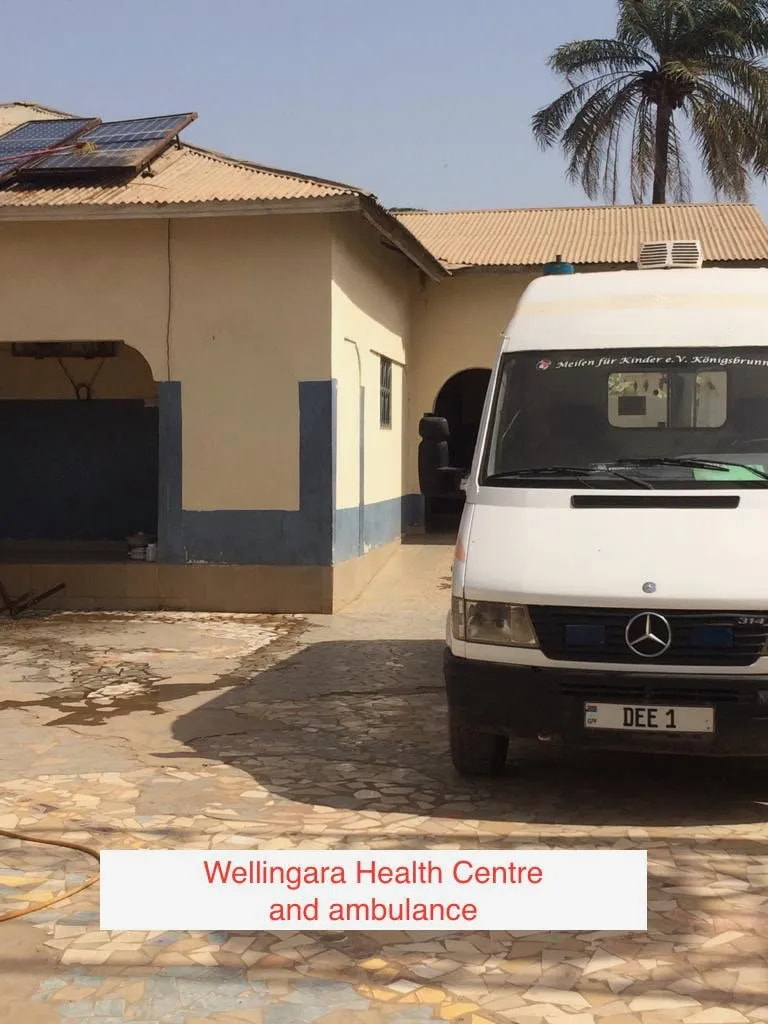
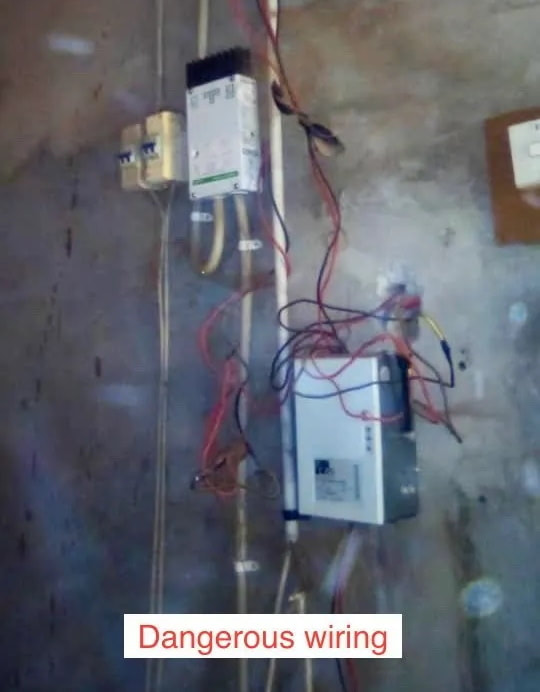
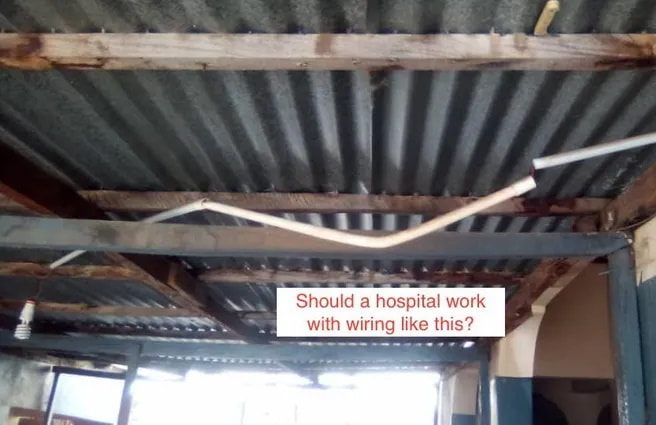
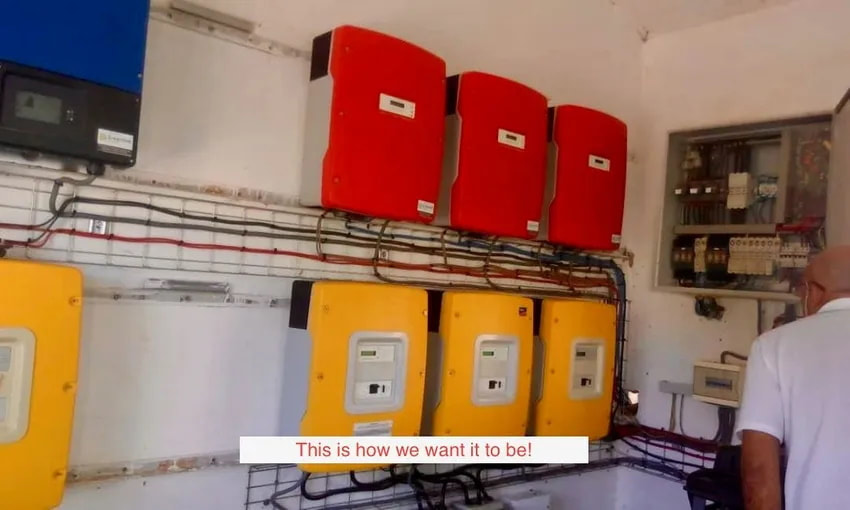
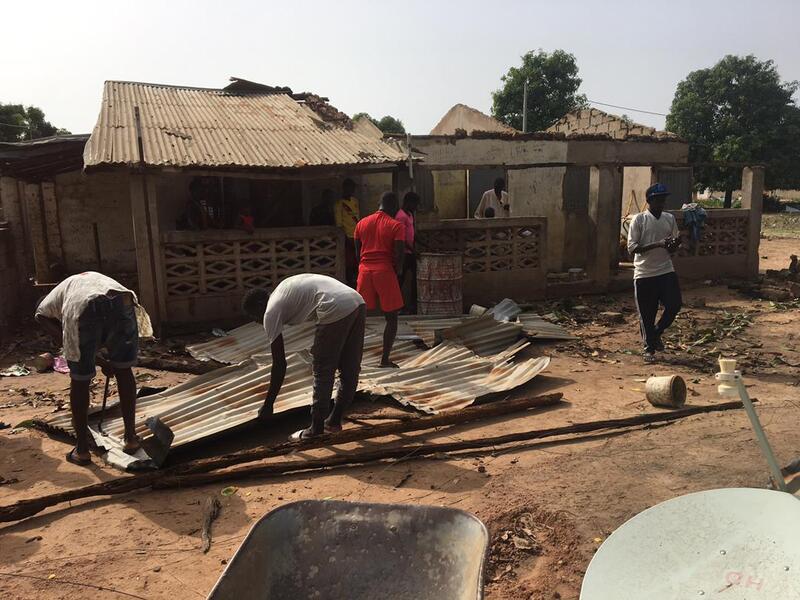
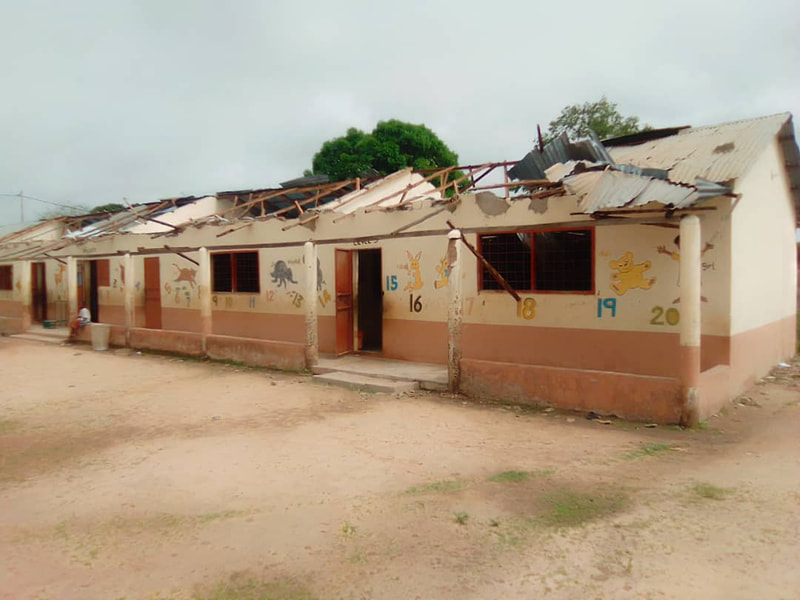
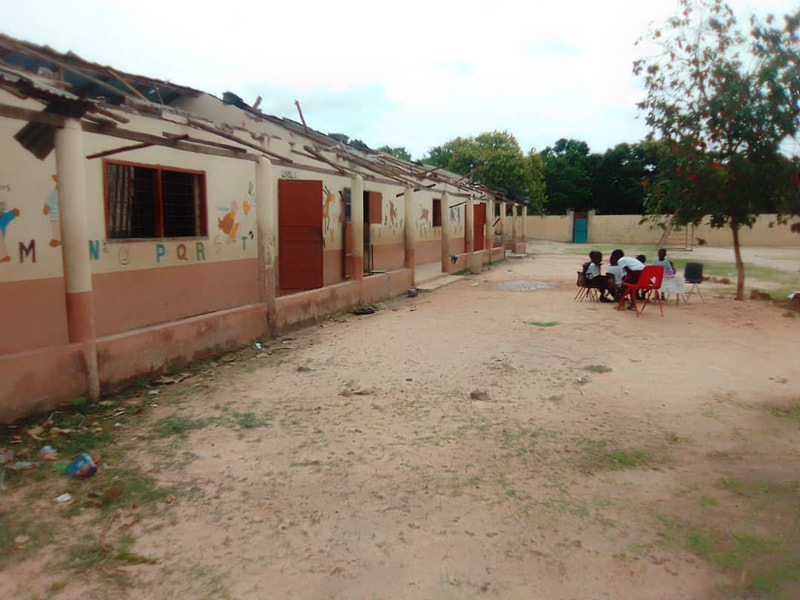
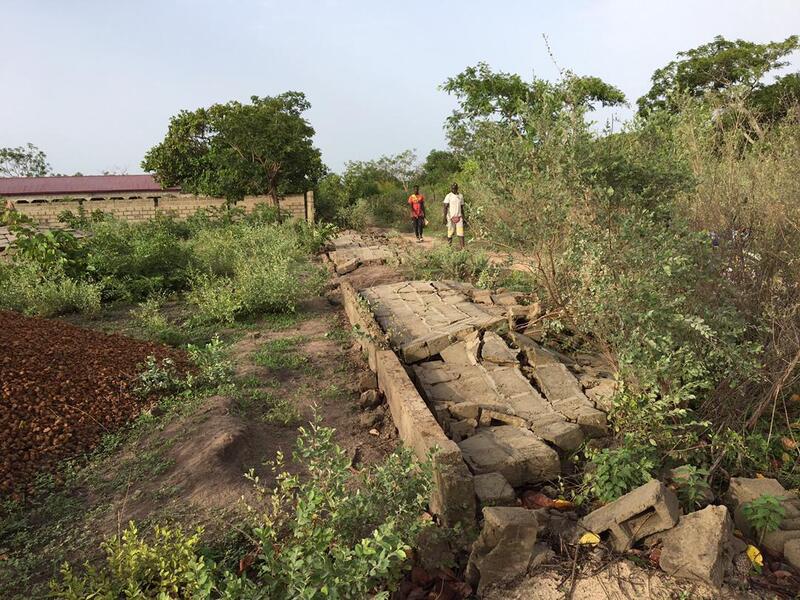
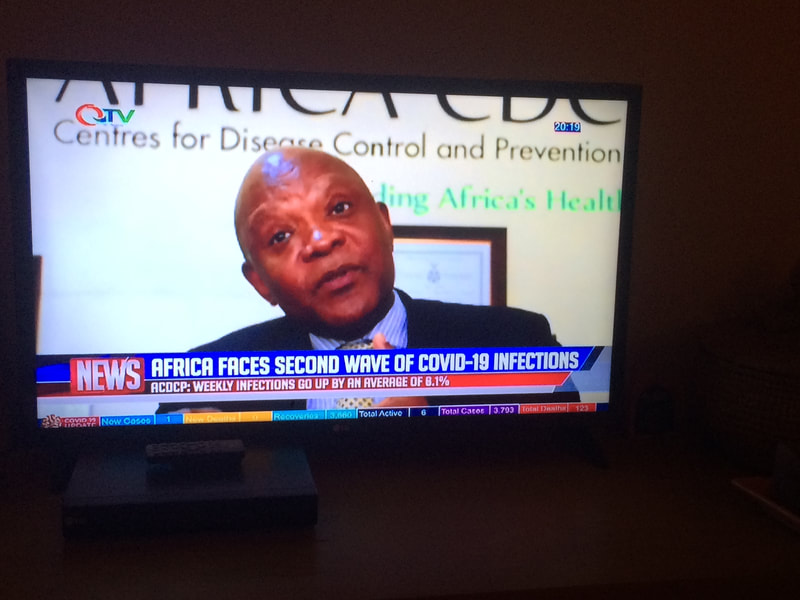
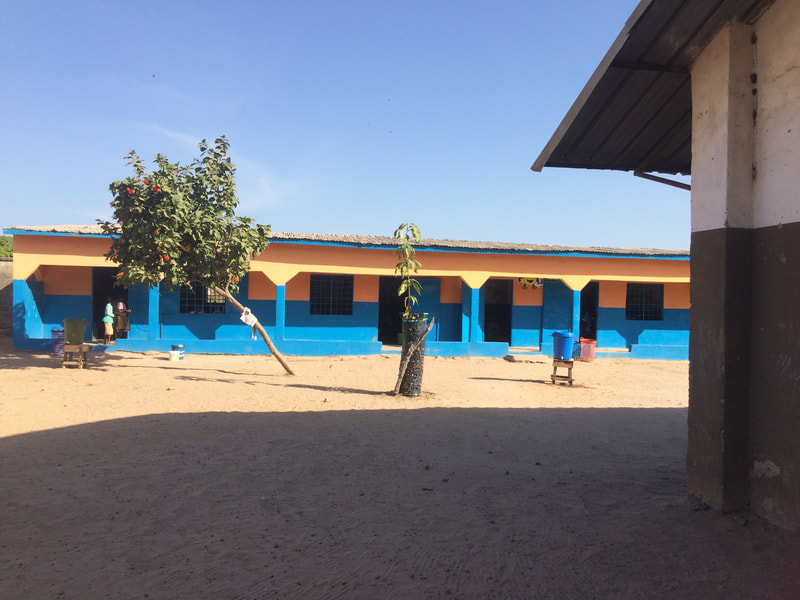
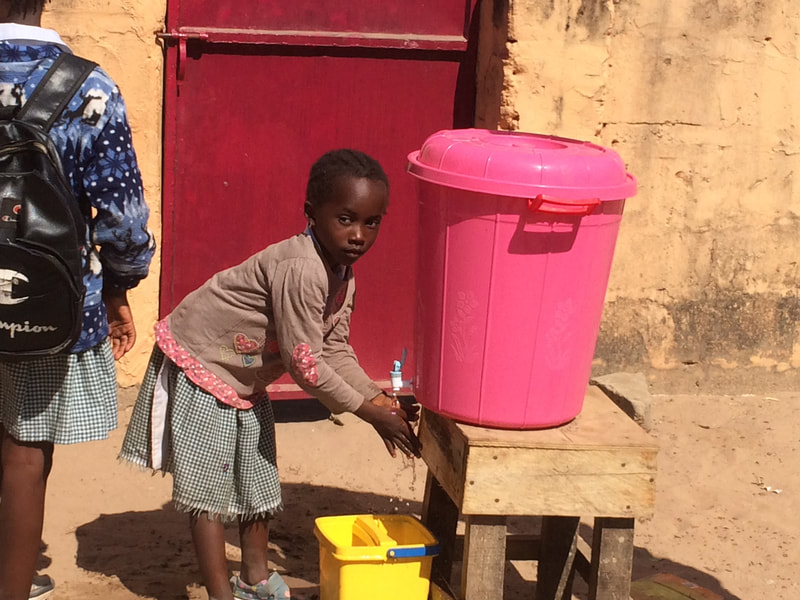
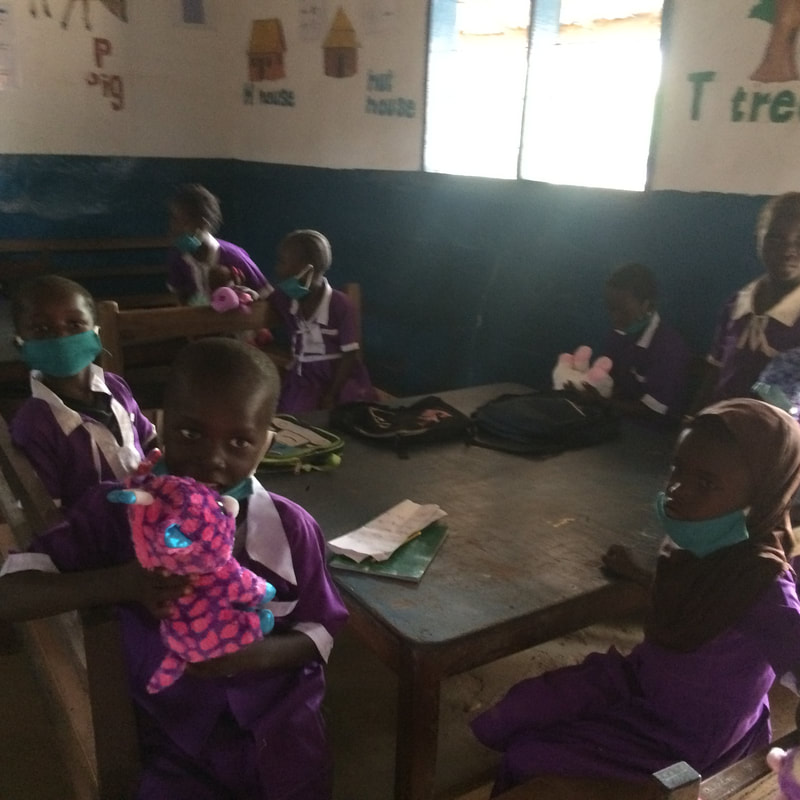
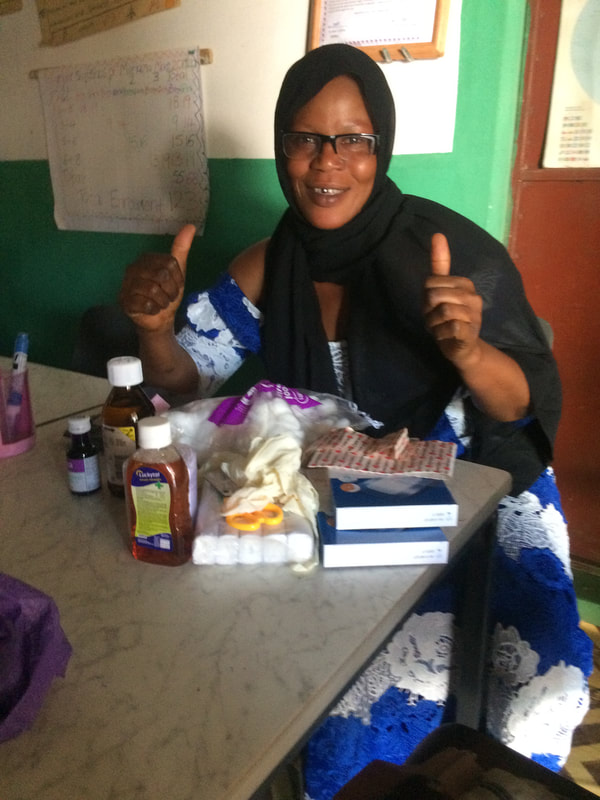
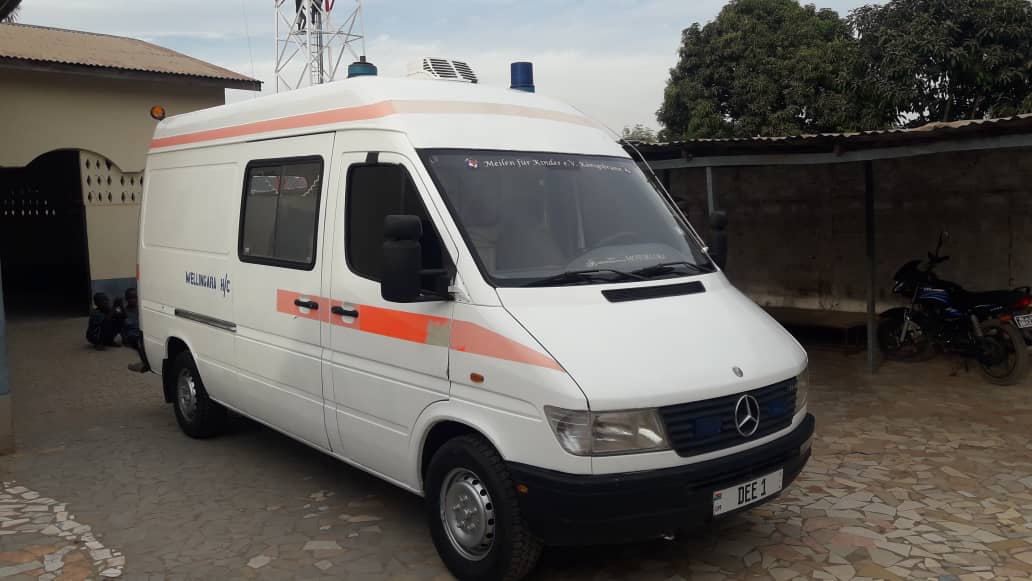
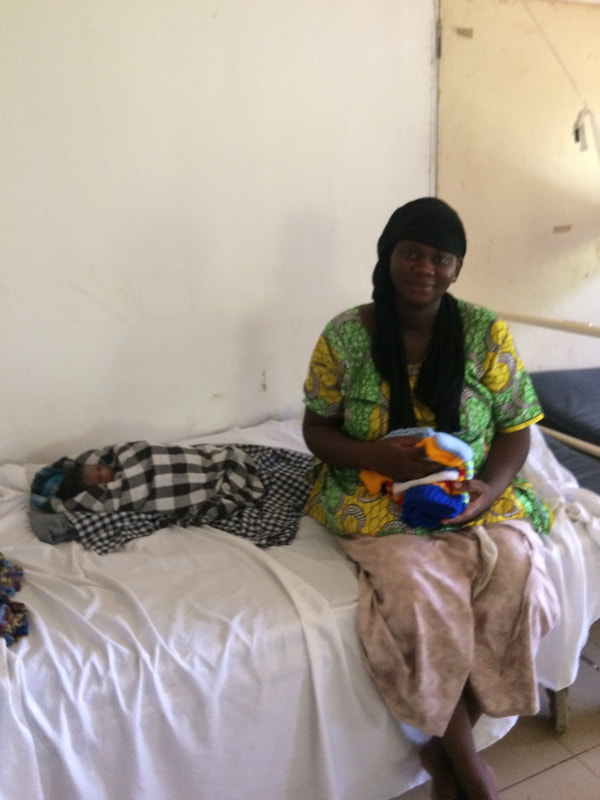
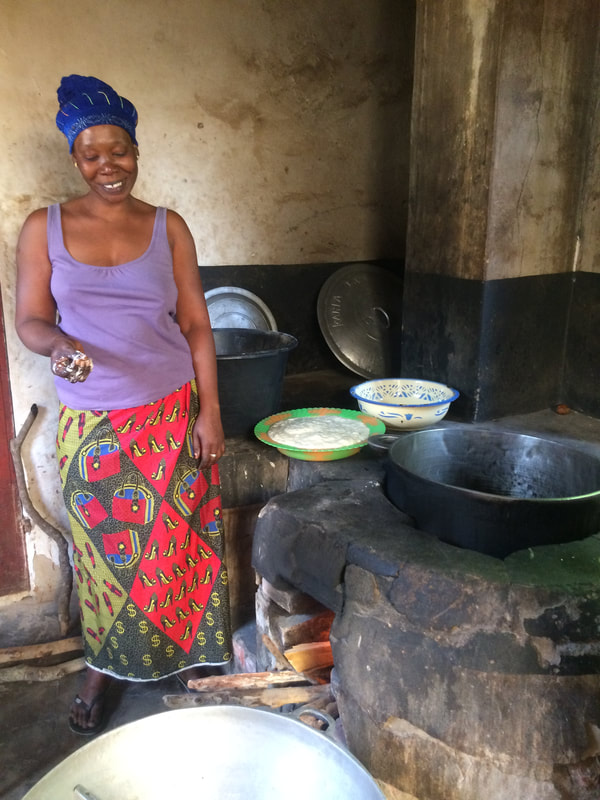
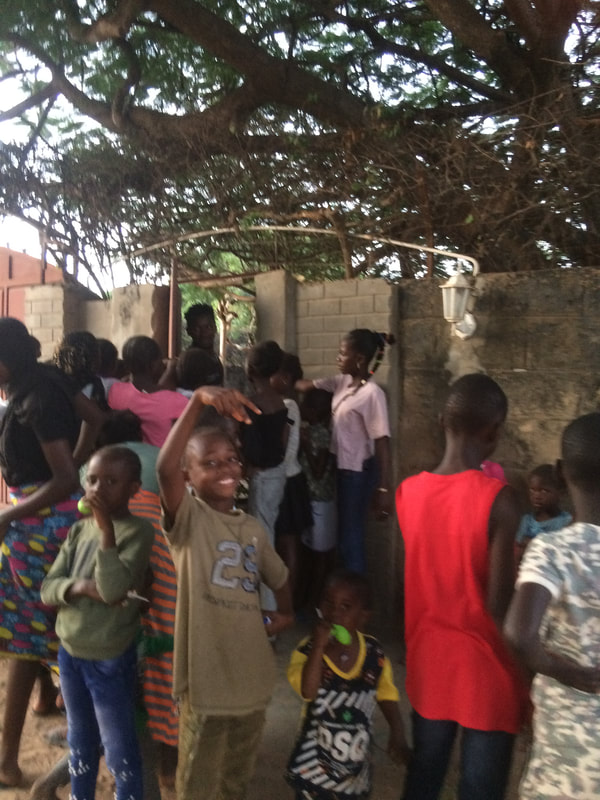
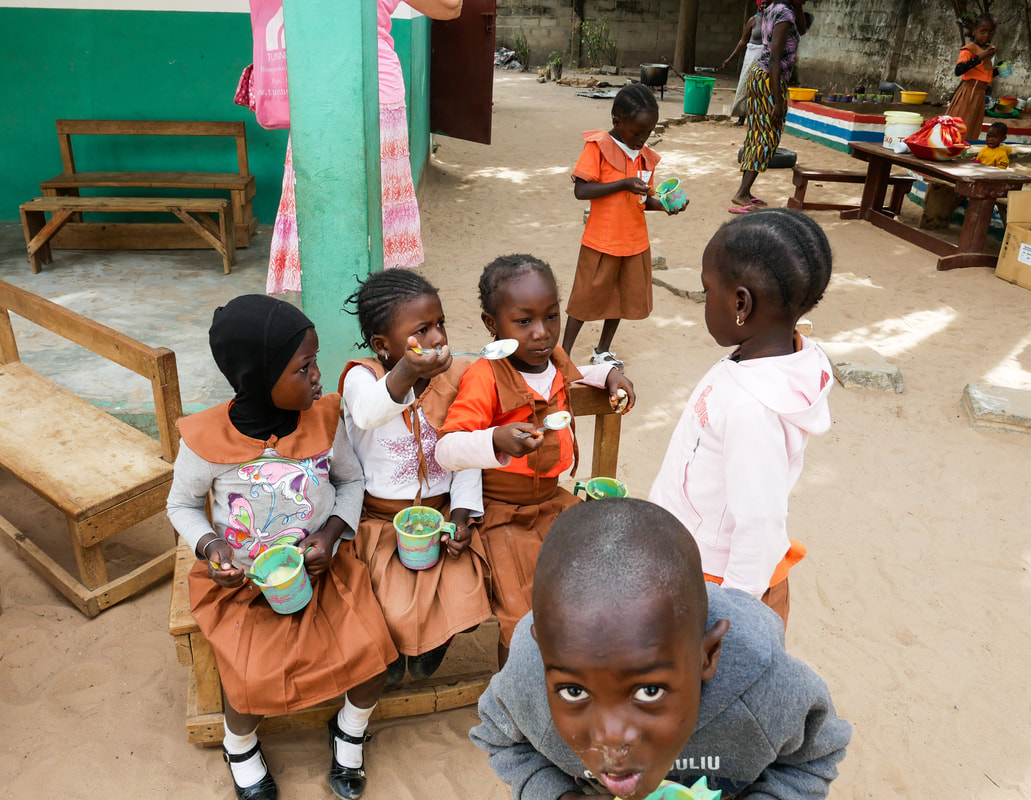
 RSS Feed
RSS Feed